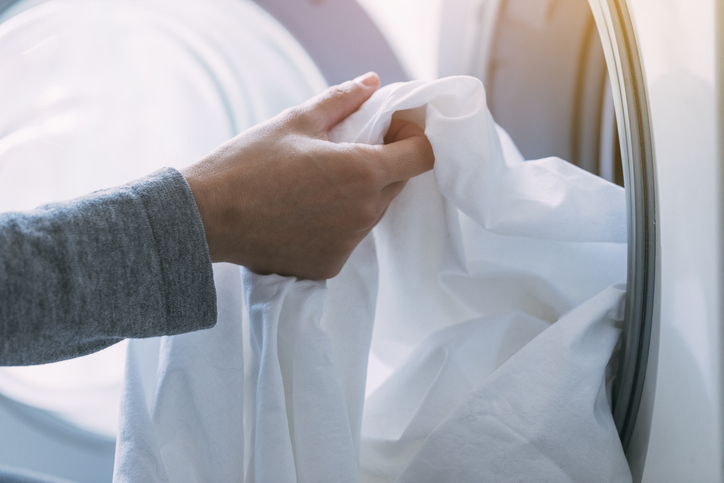- Association
- Cosmetics
- Detergents & cleaning products
- Members, Brands & Products
- Expert groups
- Laws & authorities Switzerland / EU
- Consumer Informations
- Sustainability
- Dates & Events

Sustainability – our tasks
The cosmetics, detergents and cleaning products industry recognises its responsibility and is committed to taking sustainable action.
SKW members are rising to the challenge and devoting extensive knowledge and resources to meeting the ever-increasing demands. Member companies are primarily responsible for planning, implementing and communicating their sustainability efforts.
The SKW's main responsibility is to facilitate the exchange of information and knowledge between the industry and the relevant stakeholders.
Directly to
- Informing members about relevant sustainability issues in Swiss and European legislation, specialist publications and stakeholder activities
- Inter-association sustainability knowledge sharing (best practice) in the SKW "Packaging and Environment" expert team
- Information and experience sharing between industry and stakeholders (authorities, NGOs). Participation in stakeholder organisation project groups, participation in events
- Point of contact for politics and administration, statements of position on CSR projects and draft laws in the fields of human rights and the environment
- Participation in “Go for Impact”, a collaboration between Swiss business associations, the Federal Government and environmental organisations to promote sustainable supply chains and the exchange of information on relevant topics
- Supporting the SKW member company partnership with Swiss Recycle, "Drehscheibe Kreislaufwirtschaft" (Circular Economy Hub) and “Sammlung 25”
- The SKW informs relevant stakeholders and partner organisations about sustainability issues and activities in Swiss legislation, publications and stakeholder activities.
- We help to shape and implement the activities and projects of the European umbrella and partner organisations in the field of sustainability, inform the Swiss authorities and support members in their implementation at the national level.
- The SKW informs relevant stakeholders and partner organisations about sustainability issues and activities in Swiss legislation, publications and stakeholder activities.
- We help to shape and implement the activities and projects of the European umbrella and partner organisations in the field of sustainability, inform the Swiss authorities and support members in their implementation at the national level.
Involvement of the SKW and its members in the European area
Cosmetics Europe

Overview
Cosmetics Europe's mission is to support the development of a European cosmetics industry that is innovative, sustainable, competitive and reputable and that best serves consumers.
Driving sustainable development
All consumer products have an environmental impact throughout their life cycle. Companies in the cosmetics industry have realised the importance of designing products and processes to reduce their environmental footprint and have implemented a wide range of strategies to improve the industry's sustainability.
Commit for Our Planet Initiative
How the environmental footprint of the European cosmetics industry and the entire value chain can be reduced through joint efforts and measures. Each company can choose its own path to sustainability.
Cosmetics Europe sustainability report
Cosmetics Europe has made it its mission to support the development of a European cosmetics industry that is innovative, sustainable, competitive and reputable and that best serves consumers.
Green in Action
Case studies on environmental sustainability in the cosmetics industry. The European Green Deal is one of the most significant strategic initiatives ever undertaken within the European Union. It aims to completely halt the increase in greenhouse gas emissions on our planet by 2050.
All about microplastics
According to data collected by Cosmetics Europe in 2018, 97.6% of plastic microbeads used for exfoliating and cleansing in wash-off cosmetics and personal care products were phased out between 2012 and 2017.
Environmental footprint category rules for shampoos
The European Commission conducted a series of studies on the Product Environmental Footprint (PEF) of organisations and products to support future policy proposals. At the same time, Cosmetics Europe is analysing the PEF of shampoos.
Guidelines for the cosmetics industry on the sustainable sourcing of bio-based materials
The cosmetics industry supports the objectives of the Convention on Biological Di-versity (the Convention) and the Nagoya Protocol, the international instrument adopted by the Parties to the Convention on 29 October 2010. It also welcomes the EU ABS Regulation, which, in line with the Nagoya Protocol, sets out rules for ac-cess and benefit-sharing compliance for genetic resources and traditional knowledge associated with them.

Übersicht
The International Association for Soaps, Detergents and Maintenance Products (A.I.S.E.) makes an active contribution to the relevant sustainability dossiers as part of the Green Deal.
To the website of the International Association for Soaps, Detergents and Maintenance Products
An overview of the efforts and initiatives of the A.I.S.E.:
Driving sustainable development
The A.I.S.E. has developed documents for its members, including "Good Sustaina-bility Practice for the Cosmetics Industry", which provides practical advice on how to develop an effective sustainability strategy, and "Ten Steps to Sustainability: all you need to know and do for a successful start", which helps companies (especially SMEs) get started with their sustainability efforts.
Circular economy
In 2015, the European Commission adopted its Circular Economy Action Plan, which contains measures to support Europe's transition to a circular economy, promote sustainable economic growth and create new jobs.
Further initiatives for plastics in the circular economy
In 2018, the EU Commission adopted further initiatives in this context, including the EU Strategy for Plastics in the Circular Economy. As a driving force for sustainable development, A.I.S.E. has launched several initiatives that directly contribute to the objectives of this strategy for the circular economy.
Guiding Principles on Sustainable Sourcing of Bio-Based Materials
A.I.S.E. has developed these principles to support all companies operating in the European detergents, cleaning and maintenance products industry sector and using – or intending to use – bio-based materials in final products and/or packaging material. It builds on the learnings from the A.I.S.E. Charter for Sustainable Cleaning in the domain of bio-based materials and on the most recent developments triggered by the objective to strive towards a circular economy, which also contributes to the global Sustainable Development Goals (SDGs).
Social Responsibility Guidance
This contains detailed recommendations, resources and a self-assessment tool to help all industry players, particularly small and medium-sized enterprises, manage and implement a corporate social responsibility programme as part of their overall sustainable development goal.
Engaging with consumers
One of A.I.S.E.'s key priorities is to steer the sustainable development agenda and reduce the environmental footprint linked to the production and consumption of detergents and maintenance products. To achieve this goal, A.I.S.E. runs a broad range of activities such as voluntary Product Stewardship Programmes, but also, the comprehensive A.I.S.E. Charter for Sustainable Cleaning which is implemented by nearly 250 companies in Europe.
cleanright.eu
Cleaning industry portal for consumers
Sustainable cleaning
Cleaning and hygiene products and services are essential to society and our commitment is to deliver impactful projects in a responsible way, promoting sustainable production, design and consumption.
Various activity and sustainability reports
By working together to improve water quality through chemical safety, reduce our environmental footprint and promote the circular economy, we are driving best practice and striving to be a best practice industry. View the activity and sustainability reports.
Consumer Habits Survey 2020
Consumer habits research
I prefer 30°
Low-temperature washing campaign
PEF guidelines for the industry
Product Environmental Footprint (PEF)
IFRA sustainability initiatives

Übersicht
International Fragrance Association (IFRA) and its members are involved in several projects related to sustainability. The IFRA Sustainability Charter is a collective, voluntary and inclusive effort to raise the bar for sustainability in the flavour and fragrance industry.
IFRA/IOFI Sustainability Charter
The Charter builds on the proud heritage of the fragrance and flavour industry and the long-standing commitment of many individual companies to sustainable development in all its dimensions. It complements companies' sustainability programmes and supports the overall progress of our industry by sharing best practices and benchmarking achievements.
More sustainability reports
Download the Sustainability Report documents to learn more about the IFRA/IOFI Sustainability Charter.

